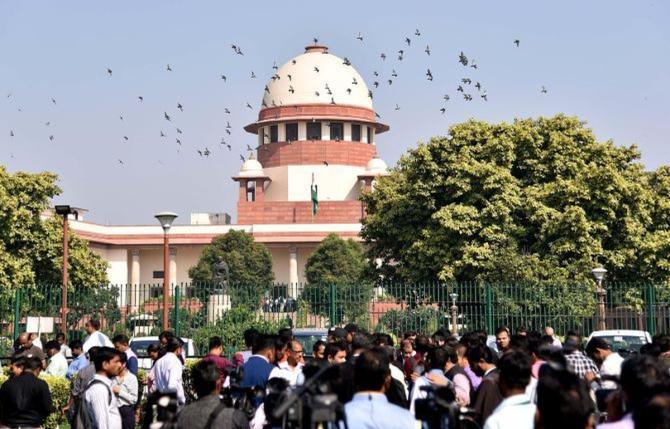The Supreme Court on Wednesday held that the states have regulatory power over production, manufacture and supply of industrial alcohol.

In a 8:1 majority ruling, the top court held that the phrase "intoxicating liquor" in Entry 8 of the State List in the Seventh Schedule of the Constitution would include industrial alcohol within its ambit.
The majority bench comprised Chief Justice of India DY Chandrachud and Justices Hrishikesh Roy, Abhay S Oka, JB Pardiwala, Manoj Misra, Ujjal Bhuyan, Satish Chandra Sharma and Augustine George Masih,
Justice BV Nagarathna, however, dissented and held states did not have the legislative competence to regulate industrial alcohol or denatured spirit.
The apex court's majority verdict overturned its 1990 seven-judge bench judgment in Synthetics & Chemicals Ltd. v. State of Uttar Pradesh holding that Centre had the regulatory power over the production of industrial alcohol.
Ethyl alcohol (which has 95 percent ethanol) is an industrial form of alcohol and unfit for human consumption.
The CJI, who authored the majority verdict, also writing on behalf of the seven judges, said Entry 8 sought to regulate everything from "raw materials to production of intoxicating liquor".
"Parliament cannot occupy the field of the entire industry merely by issuing a declaration under Entry 52 of List I. The State Legislature's competence under Entry 24 of List II is denuded only to the extent of the field covered by the law of Parliament under Entry 52 of List I," the bench said in a 364-page judgement.
Parliament does not have the legislative competence to enact a law taking control of the industry of intoxicating liquor, it added.
The majority judgment said the phrase "intoxicating liquor" in Entry 8 included all alcoholic liquids which could harm public health.
While Entry 8 in the State List under the 7th Schedule of the Constitution gives the states the power to legislate on the manufacture, possession, transport, purchase and sale of "intoxicating liquors", Entry 52 of the Union List and Entry 33 of the Concurrent List mention industries whose control was "declared by Parliament by law to be expedient in public interest".
While both parliament and state legislatures can enact laws on the subjects mentioned in the Concurrent List, a central law will have primacy over the state law.
Several state governments including Uttar Pradesh had challenged the seven-judge bench judgement and challenged that Centre's position that it had exclusive control over industrial alcohol.
The Union government referred to its power in Entry 52 of the Union List, which said industries, the control of which by the Union is declared by Parliament by law to be expedient in public interest .
Asserting its right to regulate industrial alcohol, the Union government had said that framers of the Constitution intended to give the Centre complete control over any industry through enactment of Industrial (Development and Regulation) Act, 1951 in "public interest".
The seven-judge bench had, in 1990, observed that through the Industries (Development and Regulation) Act, 1951, the Union had "evinced a clear intention to occupy" legislative competence on the subject and hence, Entry 33 could not empower a state government.
The matter was referred to the nine-judge bench in 2010 after the seven-judge bench ruled that the Centre would have regulatory power over the production of industrial alcohol.











 © 2025
© 2025